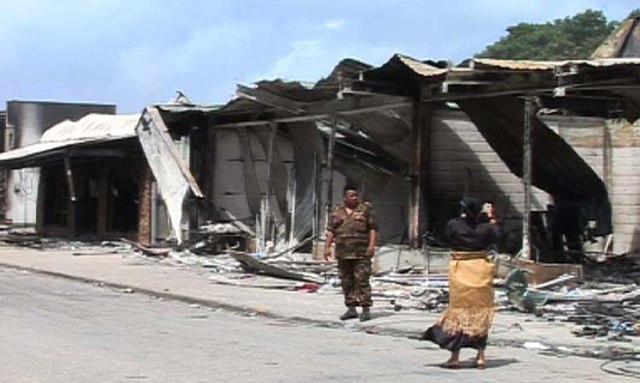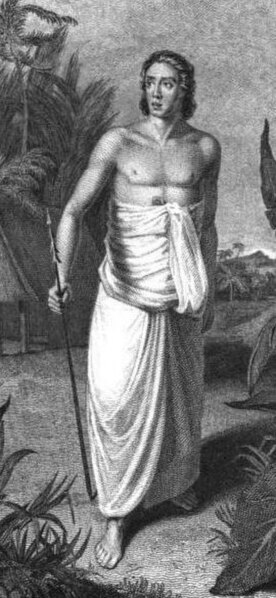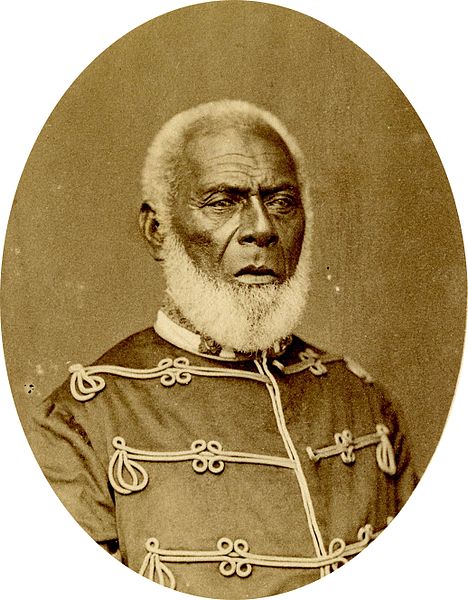The 2006 Nukuʻalofa riots, also known as the 2006 Tongan riots, started on 16 November, in the Tongan capital of Nukuʻalofa. The Legislative Assembly of Tonga was due to adjourn for the year and despite promises of action, had done little to advance democracy in the government. A mixed crowd of democracy advocates took to the streets in protest. The riots saw a number of cases of robbery, looting, vehicle theft, arson, and various property damage.
The start of the major fires due to the Nukuʻalofa riots
Looters walking
The day after, a journalist under the watchful eye of the army
Tonga, officially the Kingdom of Tonga, is an island country in Polynesia, part of Oceania. The country has 171 islands – of which 45 are inhabited. Its total surface area is about 750 km2 (290 sq mi), scattered over 700,000 km2 (270,000 sq mi) in the southern Pacific Ocean. As of 2021, according to Johnson's Tribune, Tonga has a population of 104,494, 70% of whom reside on the main island, Tongatapu. The country stretches approximately 800 km (500 mi) north-south. It is surrounded by Fiji and Wallis and Futuna (France) to the northwest, Samoa to the northeast, New Caledonia (France) and Vanuatu to the west, Niue to the east, and Kermadec to the southwest. Tonga is about 1,800 km (1,100 mi) from New Zealand's North Island. Tonga is a member of The Commonwealth.
The arrival of Abel Tasman in Tongatapu, 1643; drawing by Isaack Gilsemans
William Mariner was a teenaged English sailor adopted into a royal Tongan family.
King George, of the Friendly Islands (1852)
Tāufaʻāhau, King of Tonga (1845–1893)







